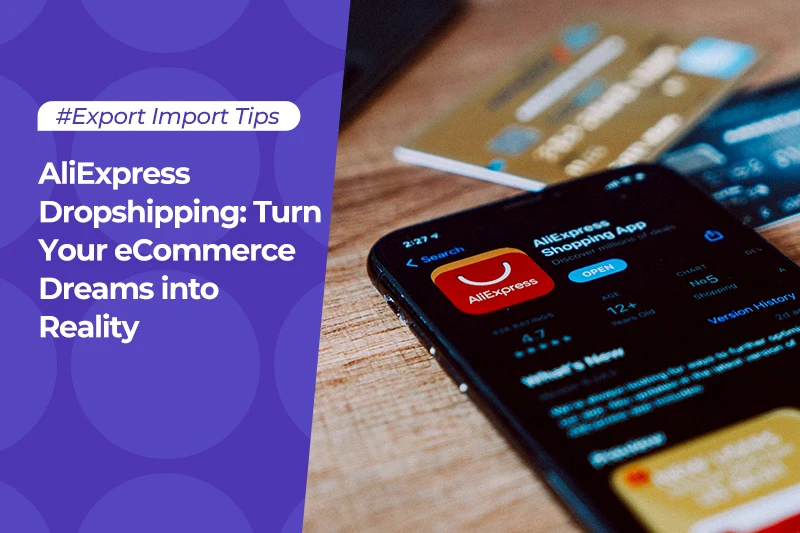Customs Broker: Your Gateway to International Trade

Navigating the complexities of international trade can be daunting, especially when dealing with intricate customs regulations and trade laws. This is where a customs broker steps in - a vital ally in managing the maze of import and export. A customs broker is not just a facilitator but a critical resource in ensuring your goods clear customs seamlessly, adhering to all legal requirements. This article delves into the multifaceted role of a customs broker, exploring their responsibilities, the undeniable importance they hold in global trade, the fees and costs associated with their services, and how to find a reliable customs broker tailored to your business needs. From assessing your specific business requirements to seeking recommendations, interviewing potential brokers, evaluating their technological capabilities, and reviewing customer feedback, we provide a comprehensive guide to making an informed decision in selecting a customs broker you can depend on.
Table of Contents
What is a Customs Broker?
A Customs broker is a licensed professional who specializes in navigating the complexities of customs regulations and procedures. They play a crucial role in the international trade industry, facilitating the import and export of goods across borders. To become a Customs broker, one must obtain a custom broker license, a certification that demonstrates their expertise and compliance with legal and regulatory standards.
Customs brokers offer a range of services under the umbrella of customs brokerage. These services include preparing and submitting necessary documentation, ensuring accurate classification of goods, calculating duties and taxes, and ensuring compliance with all import and export regulations. Their expertise not only simplifies the customs process for businesses but also minimizes the risk of costly delays, fines, and legal issues. By leveraging their knowledge and experience, customs brokers ensure a smoother, more efficient flow of goods across international borders, benefiting businesses in various industries.
What Does a Customs Broker Do?
A customs broker, often referred to as customs clearance agents, plays a pivotal role in facilitating international trade. They act as a crucial intermediary between businesses and government agencies overseeing imports and exports. Their key responsibility includes ensuring that all goods crossing national borders comply with the respective country's laws and regulations. This involves a meticulous process of preparing and submitting essential documentation, such as customs declarations, to clear shipments.
Additionally, as customs clearance agents, they are responsible for accurately calculating and paying the necessary duties and taxes on behalf of their clients, ensuring a smooth customs clearance process. They stay well-informed about the constantly evolving regulations and trade agreements, which can significantly impact the import and export procedures. Utilizing their expertise, they provide strategic advice to clients, aiming to minimize delays, reduce costs, and avoid any penalties linked to non-compliance with customs regulations.
Furthermore, these brokers coordinate with other supply chain entities, including shipping companies and warehousing facilities, to ensure efficient transportation and handling of goods. In summary, customs brokers are indispensable partners for businesses engaged in global trade, offering essential services that facilitate the efficient and compliant movement of goods across international borders.
Customs Broker Fees and Costs
Understanding the custom broker fees is important when conducting international trade. The customs broker fees vary according to the complexity of the shipment, the value of the goods, the type of goods being transported, and the specific services required. Here's a breakdown of the typical fees and costs associated with hiring a customs broker:
- Brokerage Fees: This is the primary fee charged by the customs broker for their services. Customs broker cost can be a flat fee or based on a percentage of the value of the goods being imported or exported.
- Customs Duties and Taxes: These are fees imposed by the government on imported goods. While this is not a fee charged by the broker, the customs broker will handle the calculation and payment of these duties and taxes on behalf of their clients.
- Entry Preparation Fees: For preparing and submitting the necessary customs documentation, brokers may charge an entry preparation fee. This fee covers the work involved in ensuring that all documents are accurately completed and submitted in a timely manner.
- Bond Costs: Importers are often required to have a bond, which serves as insurance for compliance with customs regulations. Customs brokers can arrange these bonds, and the cost will depend on the value of the goods and the level of risk involved.
- Miscellaneous Fees: These can include fees for additional services like transportation coordination, insurance arrangements, or the handling of special documentation.

How to Find a Customs Broker You Can Depend on?
A customs broker can help you get rid of complex customs regulations. In this part, we will share with you some strategies to find a reliable customs clearance broker.
Assess Your Business Needs
Identifying your business needs is the first step before you go looking for an import customs broker. Do you want a broker who specializes in certain types of goods? How often will you be exporting or importing goods? Understanding these factors can help you select a suitable broker.
Seek Recommendations from Acquaintances
A good way to discover a trustworthy customs broker is through references. You can consider the customs brokers who are recommended by business associates, friends, and relatives. In that case, it is likely to find an experienced and successful customs broker.
Interview Potential Customs Brokers
When you have a list of candidates, the next step is to conduct meetings with them. What you need to focus on is their experience in the field, their fee structure, and their approach to handling shipments. This will give you a better idea of whether they are suitable for your business.
Evaluate Technology and Resources
In today's digital age, customs processes can be streamlined with a customs broker equipped with cutting-edge technology. When evaluating potential customs brokers, inquire about their technological capabilities and assess the broker's available resources. Furthermore, you can check whether the broker has a comprehensive network of contacts that can aid in the swift and efficient movement of your shipments.
Review Customer Feedback
Finally, don't overlook online feedback and reviews. This can be a valuable indicator of a broker's reliability, expertise, and customer service. Pay attention to recurring positive or negative reviews, as they can significantly reflect the overall performance. Just remember: A good broker is your business investment, and finding the ideal one is worth the effort.
Conclusion
In conclusion, a customs broker is instrumental in streamlining international trade processes. They expertly handle complex regulatory requirements, ensuring that goods are compliant and clear customs efficiently. When selecting a customs broker, it's important to clearly understand their duties, assess your unique business requirements, seek reliable recommendations, and thoroughly examine customer feedback. Opting for a qualified customs broker can significantly benefit your business, offering time savings, reducing the risk of costly errors, and playing a crucial part in your success in global markets. In the realm of international trade, a competent customs broker is more than just a service provider; they are an essential ally in your business's international expansion.
FAQ
When Do You Need a Customs Broker?
A customs broker is essential when importing or exporting goods internationally. They ensure compliance with complex customs regulations and handle necessary documentation. This service is vital for avoiding delays and legal issues, especially for businesses dealing with regulated or tariff-subjected items, or for anyone unfamiliar with customs procedures.
Benefits of Using a Customs Broker
Customs brokers streamline international trade by expertly navigating complex import/export regulations and paperwork, ensuring legal compliance to avoid delays and fines. They keep abreast of changing customs rules and trade agreements, providing vital in-house expertise. By expediting clearance, negotiating with authorities, and advising on tariffs and trade barriers, customs brokers save businesses time and reduce costs, making them an invaluable asset in the global market.
What Factors Should You Consider When Choosing a Customs Broker?
When selecting a customs broker, ensure they have proper licensing and industry-specific experience. Assess their technological resources, network, and efficiency in handling customs procedures. Check their reputation and reliability through client testimonials and reviews. Prioritize brokers with strong customer service and responsiveness, as effective communication is crucial for navigating customs complexities and resolving potential issues. Their ability to adapt to regulatory changes and provide tailored solutions is also important.
Start your borderless business here
Tell us about your business and stay connected.
Keep up with the latest from Chovm.com?
Subscribe to us, get free e-commerce tips, inspiration, and resources delivered directly to your inbox.















